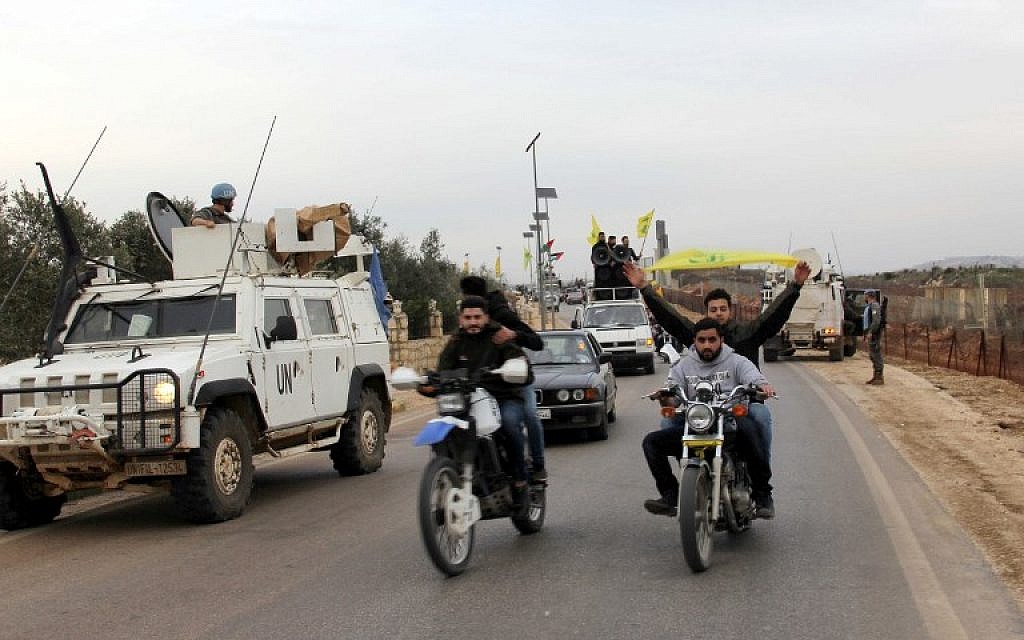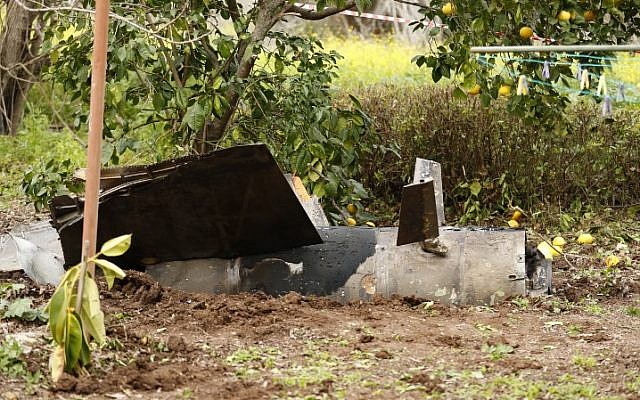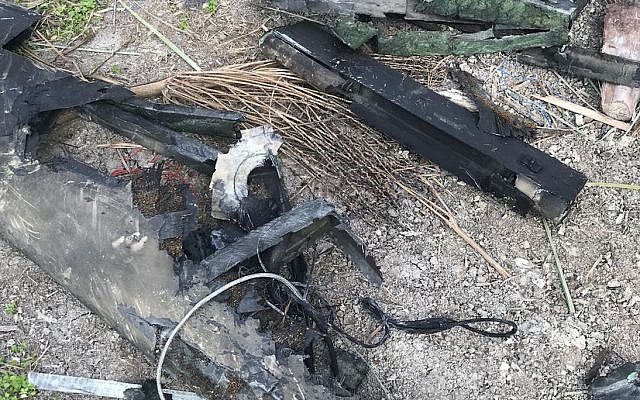While Tehran and its allies hail start of a ‘new era’ with downing of Israeli jet, exacting response may cause them to think twice the next time

Since Saturday morning, Syrian and Iranian authorities have busied themselves with reveling in the reported downing of an Israeli F-16 fighter jet by Syrian air defenses.
In Damascus, residents handed out candies to passersby. Social media users shared cartoons depicting an Israeli plane being struck by Syrian missiles, while in Damascus, Tehran and even Gaza there were declarations of a “strategic change in the region” and a “new equation.”
Indeed, it was a symbolic victory for the Iranian-led “Shiite axis,” with Iran and its allies Syria and Lebanese terror group Hezbollah succeeding where no one else has since the 1982 first Lebanon war.
Iran is already declaring it will no longer allow any Israeli moves that violate Syria’s sovereignty and Tehran and its allies can appear victorious, particularly among their already anti-Israel populaces.
But Israel can also declare a win, with the Israeli military saying its strikes against targets in Syria were “the biggest and most significant” since 1982.
These respective positions, perhaps, explain the relative calm that has prevailed since the retaliatory Israeli airstrikes Saturday morning.

The main takeaway from the escalation, however, is not the points the sides may have scored at home, but what it means for Israeli deterrence, as well as that of Iran and Syria.
Iran and its proxy Hezbollah have already declared the downing of the plane marks the “end of the era of Israeli aggression in Syria.”

This, however, is not likely, as Israel will probably continue to strike in Syria, as Iran continues to try to transfer advanced weapons to Hezbollah and other Shiite groups, as well as attempt to set up factories for advanced missiles and entrench its military presence in Syria.
And the Iranians? The Iranian Revolutionary Guard Corps’ Quds Force, headed by the infamous General Qassem Soleimani, will not cease its military entrenchment in Syria. Soleimani, riding high from his victories in Yemen, Iraq and Syria, will likely do the opposite and continue as planned.
The Iranian drone that penetrated Israeli airspace, triggering the morning’s exchange of fire, was launched from the T-4 military air base, near the ancient desert city of Palmyra. The base had been in the hands of the Islamic State terror group, but was recaptured with the help of the Quds Force.
After taking off in Syria, the hi-tech drone flew over Jordan, before entering Israeli airspace, where it remained for a minute and a half before being shot down, showing Iran’s daring is at an all-time high.
However, Tehran may think twice before again flying an Iranian drone over Israel, in light of the toll Israel’s response exacted on Syria’s air defenses.
Saturday’s escalation came as Syria and Iran are engaged in fierce fighting against rebel groups in the northern province of Idlib and the suburbs of Damascus. At this stage, it can only be hoped that Iran understands that a military conflict with Israel would be took much for it to handle.
Which raises the question, what motivated Iran to pilot a drone into Israeli airspace?
With its victory over IS and lack of American or Russian interest in its military buildup in Syria, Tehran may have become overly confident, believing that it could fly a drone into Israeli skies without Israel noticing, or that any response would be limited.

The Iranian drone was a “low signature” model, meaning it is difficult to pick up on radar, and Israeli’s ability to detect the drone was a testament to the success of the IDF’s air defenses.
Apparently, due to a misjudgment, or a misunderstanding of the Israeli side and the extent of Israel’s intelligence capabilities in Syria, the Iranians took the action they did.
This complacency, or hubris, was also the main factor behind the Syrian army’s decision to plan a wide-scale attack on the Syrian Democratic Forces — the collection of US-backed Kurdish and Syrian fighters in eastern Syria.
For whatever reason, Syria thought such an attack on US-aligned forces would not be met with a heavy response. The US, who knew in advance of the planned attack, launched a preemptive strike on the Syrian forces, thwarting the offensive and killing over 100 Syrian-backed fighters.
All of which shows, the victories over IS went to Iran and Syria’s heads. It can only be hoped that despite the downed F-16, the Israeli response will succeed in setting the Iranian-led Shiite axis straight and bringing it back down to earth.
As reported by The Times of Israel
